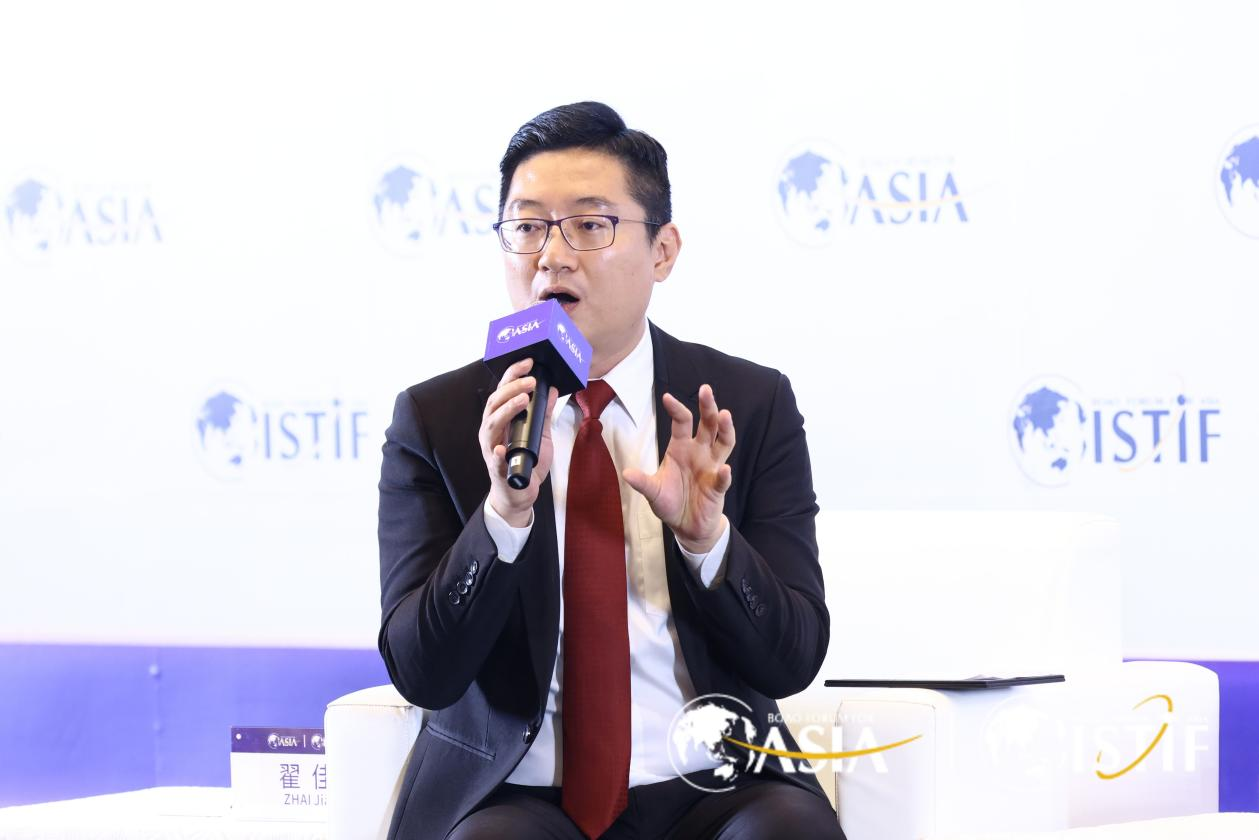The session was moderated by ZHAI Jia, Senior Editor of Omni-media Communication Center of Guangzhou Broadcasting Network.The panelists included WANG Yitao, Director of the Macao Center for Research and Development in Chinese Medicine and Founder of the State Key Laboratory of Quality Research in Chinese Medicine; GUO Jiao, Director of the Key Laboratory of Glucolipid Metabolic Diseases of Ministry of Education and Former President of Guangdong Pharmaceutical University; FAN Guanjie, General Director of the Endocrinology Department at Guangdong Provincial Hospital of Traditional Chinese Medicine and Vice President of Diabetes Branch of World Federation of Chinese Medicine Societies; JIN Shiming, Secretary-General of Metabolic Diseases Committee of the World Federation of Chinese Medicine Societies and Vice President of the Guangdong Provincial Association of Chinese Medicine; and WANG Jun, Chairman, Fasciology Collaborative Innovation Community, Chinese Association of Traditional Chinese Medicin and Chairman of Fasciology Committee of Guangdong Chinese Medicine Society. They discussed various topics related to traditional Chinese medicine.
WANG Yitao pointed out that the path to developing traditional Chinese medicine (TCM) in Macau is through cultivating internationally oriented TCM professionals and establishing research institutes. Macau also integrates TCM with the health industry to form an innovative community of industry, academia, research, and innovation. GUO Jiao believed that there is still a certain distance between the practice of integrating Chinese and Western medicine. TCM emphasizes syndrome differentiation and holistic view, while Western medicine is based on anatomy and single-target treatment. True integration of Chinese and Western medicine requires a fusion of theories and a holistic approach to achieve the construction of a sound medical structure system. FAN Guanjie emphasized that the biggest challenge for the development of TCM is the lack of innovation and the need for theoretical reshaping. It requires returning to a philosophical level to consider and address issues in TCM. JIN Shiming stated that ancient Chinese science and TCM have unique ways of thinking and valuable experiences in understanding the world and protecting human health. The wisdom of TCM should continue to be inherited and promoted to address the health challenges of modern society. WANG Jun pointed out that using fascia as a carrier to interpret the scientific nature of TCM is an important pathway to achieve the modernization of TCM.
The panelists unanimously agreed that both inheritance and innovation are two indispensable aspects of the development of traditional Chinese medicine (TCM). Cultivating internationally oriented TCM professionals and establishing research institutes are means of inheriting TCM. The philosophical thinking and the methodology of syndrome differentiation and treatment in TCM form the basis for innovation. Integrating Chinese and Western medicine should not be a simple combination of two knowledge systems, ways of thinking, and frameworks. Instead, it should be a synthesis that integrates and complements each other based on mutual learning and mutual reference. The concept of integrative medicine serves as a good path for the practice of integrating Chinese and Western medicine.







